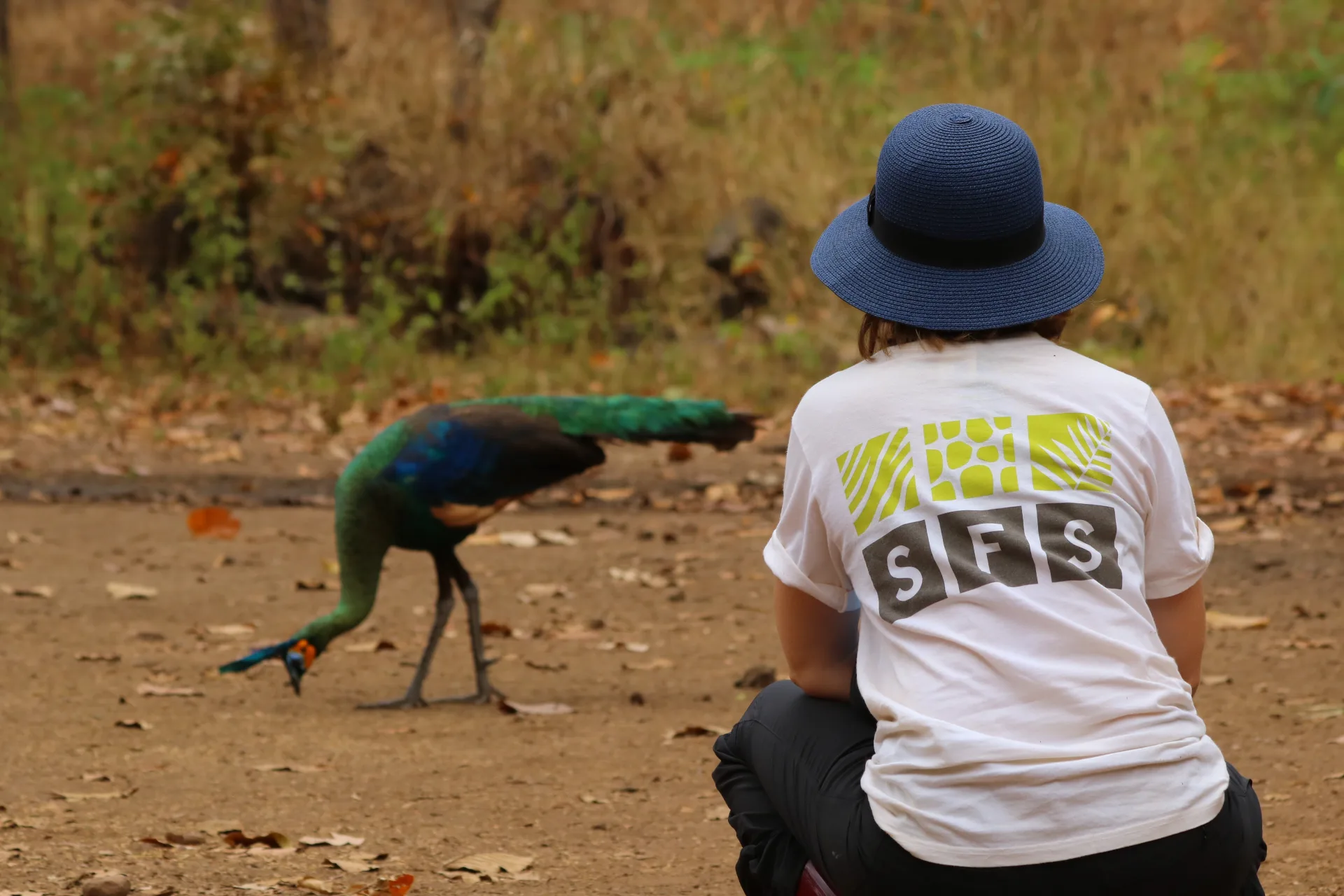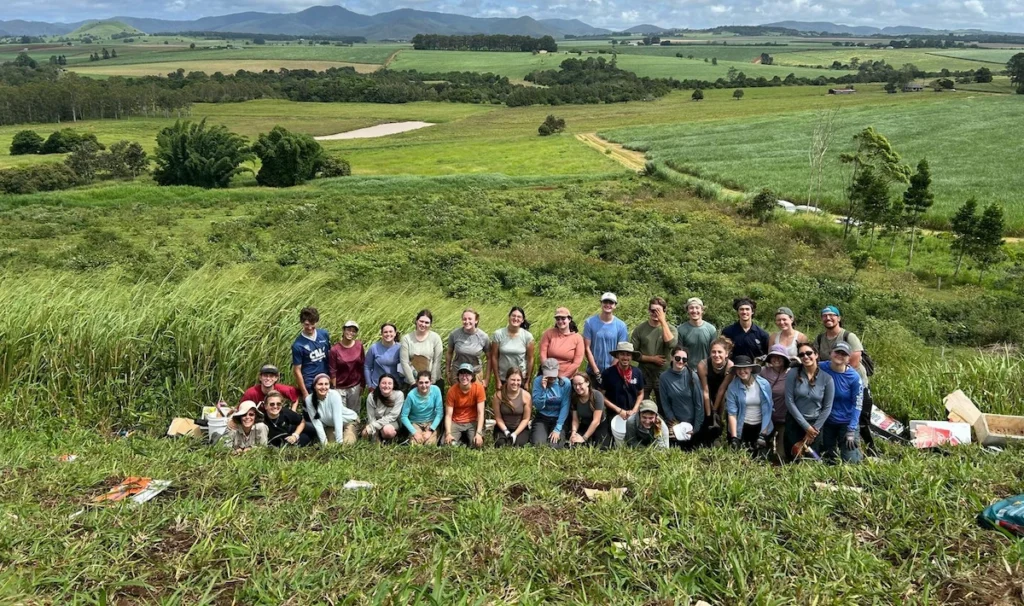
By: Georgina Lloyd, PhD
From SFS to the UN: An Interview with Georgina Lloyd
Meet Georgina Lloyd, the Regional Coordinator of Environmental Law and Governance for Asia and the Pacific with the United Nations Environment Programme (UNEP)! Prior to her role with UNEP, Georgina served as the Center Director for SFS’ Center for Conservation and Development Studies in Cambodia. We caught up with Georgina to talk all things study abroad and environmental policy. She shares her advice for students interested in a career path like hers!
What learnings or goals from your work leading the SFS Cambodia Center remain present in your current work?
As Center Director, I oversaw both the strategic research direction and scope of the experiential studies, which provided a rich exposure to different ecosystems, communities, conservation, and development actors and environmental challenges. I learned the importance of working closely with communities to address environmental problems and support sustainable development and I understood the unique challenges that local partners and communities face in seeking to address environmental degradation and support conservation. These lessons continue to inform the approaches and partnerships that are taken through my work with UNEP to support Member States to address the triple planetary crisis through environmental law and governance.
What can you tell us about your work in climate justice today in Southeast Asia? What is UNEP working to do in the area?
In my role, I support 41 Members States across Asia and the Pacific to implement good environmental governance and advance environmental rule of law. Good environmental governance addresses issues of environmental justice–including climate justice–by upholding procedural rights, including rights to participation, access to information, prior and informed consent, and access to justice. Adequate procedural rights are essential in order to promote, protect, and respect substantive rights, including rights to land; access to natural resources; and the right to a safe, clean, healthy, and sustainable environment, particularly for persons and groups in vulnerable situations, including children (Learn more). Promoting, protecting, and respecting these rights is closely linked to trends in environmental justice–evidence has shown that environmental harm disproportionately impacts individuals, groups, and peoples already living in vulnerable situations – including women; children; the poor; ethnic, sexual, and gender minorities; migrants; Indigenous people; older persons; and persons with disabilities. Climate justice acknowledges that certain groups are disproportionately affected by the impacts of climate change, and it seeks to address these inequalities within all climate action, including mitigation and adaptation strategies (Learn more). Climate justice includes issues of distributive justice and the disproportionate impacts of climate change on children, youth, and future generations. There are issues of both inter-generational and intra-generational equity. Through providing recommendations to Member States and other stakeholders and in undertaking capacity building and technical legal assistance, we ensure a rights-based approach to addressing climate change and address obstacles to climate justice. You can read more about the specific ways in which we work to address climate justice in Environmental Rights Brief: Climate Justice in Southeast Asia.
What would you say to SFS students (and caring citizens everywhere!) wondering how they can contribute to climate justice?
You can learn more about the issues by reading widely and taking courses on the topic (such as UNEP’s courses on InforMEA3), you can understand the problem in the field and explore solutions through experiential learning with SFS (I have had former students study climate justice and migration issues in Cambodia), you can get engaged in intergovernmental processes to have your voices heard through youth constituencies such as YOUNGO and the UN Major Group on Children and Youth (MGCY) or the UNEP MGCY, and you can promote and protect children’s rights to a healthy environment (read here to learn more).
How can a study abroad experience like that with SFS prepare a student for a career path like yours with the United Nations?
A global perspective is valuable in the UN, as is experience within different cultures and traditions. SFS can prepare students by building not only environmental consciousness but also social awareness that enables the pursuit of environmental justice. SFS also exposes students to a variety of partnerships and ways of addressing environmental challenges as well as providing a robust academic experience, all of which are important foundations for a career with the UN.
Any message for alumni of SFS Cambodia who may be following along today? Any advice for future SFS students?
For alums: Stay motivated! The triple planetary crisis of pollution, biodiversity loss, and climate change needs everyone to step up and work to protect people and the planet. Also, the world needs more environmental lawyers, so if you are thinking of next steps, consider environmental law!
For future students: The experience an SFS program provides is incredibly valuable to really allow you to understand the nuances and complexities of environmental challenges, but also how these can be addressed in partnership with communities, government, business, and civil society. This experience will surely assist a future career in the environmental field!

Georgina observing a Green Peafowl at BeTreed during her time with SFS Cambodia.
_______
Curious to learn a bit more about the SFS Cambodia Center? Click here to read about why we’re based there, our environmental research focus, how we connect and support the local community, and even take a tour of the Center.
Related Posts

Cinder Cone Chronicles: Lessons from Drought, Data, and Determination

Reuniting with Tanzania: Eric Walsh’s “Reunion Flag” Keeps the Spirit Alive
